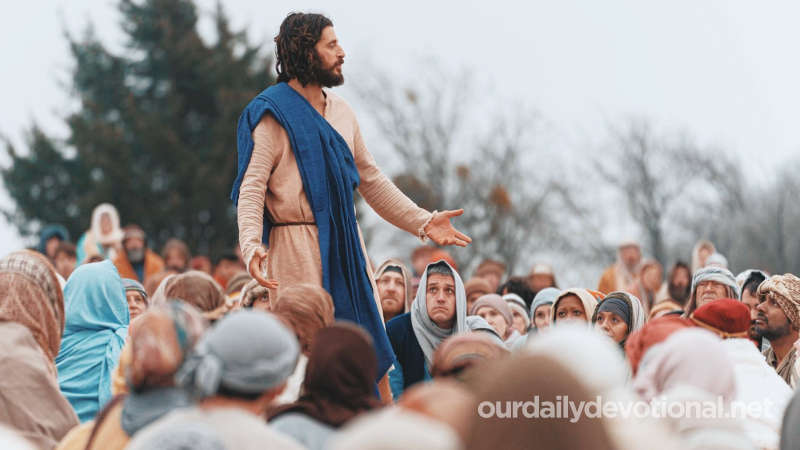They are two historical books of the OT.
(a) Introduction.
It is evident that they are from a single author; Both books present an evident unity of plan and purpose, a unity that would be broken if these books were separated.
In the ancient Hebrew canon these two books formed a single work. In the LXX it was divided in two, a division that was finally admitted in the printed editions of the Hebrew canon.
The Hebrew name of these books is "Acts of the Days", that is, Annals. In the LXX they are titled Paralelipómenos, which means "The Omissions." This title, poorly chosen, erroneously indicates that this work would merely be a supplement to the books of Samuel and Kings, while in reality it has a particular purpose.
The name Chronicles comes from the title Cronicón that Jerome gave to these writings. He regarded them as a chronicle of all sacred history.
The Chronicles are naturally divided into 2 sections:
(A) The genealogies, especially those of Judah, Benjamin and Levi, from creation to the return of the exiles in Babylon (1 Chron. 1-8), with a list of those who lived in Jerusalem probably before the exile ( 1 Chron. 9:1-34).
The genealogy of Saul and Jonathan, and the account of his death (1 Chron. 9:35-10:14) form the transition between both sections.
(B) The history of the Israelites, and more especially that of Judah, from the consecration of David to the return of the exiles in Babylon (2 Chron. 11-36).
The abrupt ending of Chronicles, the analogy of its last verses with those of Ezra 1, have led us to think that Chronicles and the book of Ezra had originally been a single uninterrupted work. But hypotheses can be given about these verses:
(A) Both Chronicles and Ezra are quotes from one and the same official document.
(B) Or, as is more likely, one of the books collected the verses of the other.
These writings, like a different plan, never constituted a single work. The oldest tradition has never considered them as a single book although they could have been written by the same author.
(b) Date.
The first information we have about the date of the Chronicles is found in the genealogies.
David's descent is indicated to a more recent date than any other genealogy. Since Zerubbabel's grandsons are mentioned (1 Chron. 3:19-21), this work cannot have been mentioned long before the time of Ezra.
It is frequently stated that Zerubbabel's descendants are recorded in the genealogy down to the 6th generation (1 Chron. 3:21-24), but there is not the slightest evidence that the families listed in the 2nd part of the verse are descendants of Hananiah, the son of Zerubbabel.
His extraction, and that of Shecaniah, whose descendants are mentioned in detail (21-24), are not indicated.
The non-connection of certain families commonly appeared in these genealogies; In the event that the text is not defective, this fact means that the family thus freely placed in the catalog belonged to the clan or tribe with which it is registered, although its affiliation is not determined.
The 4 families mentioned in v. 21 were of the line of David, collateral with the royal descent through Hananiah, son of Zerubbabel.
The other data also indicate the time of Ezra. The sum offered for the temple is given in Persian and not Greek currency; 1 Chron. 29:7 speaks of Darics, which reveals that the Greek empire had not yet supplanted the Persian when the Chronicles were written.
The term "Birah", palace or castle, to designate the temple, indicates a time not later than that of Nehemiah, since after him "Birah" did not mean the temple, but a fortification erected by Nehemiah (Neh. 2:8 ; 7:2); To distinguish this building from the temple and other buildings, it received the designation of citadel or fortress.
(c) Author.
Tradition attributes the Chronicles to Ezra. W. F. Albright supports this position, and thinks that this work was written by him between the year 400 and 350 BC.
Modern critics generally propose a later date, but the arguments presented against the traditional date are inconclusive.
The chronicler's vocabulary is similar to that of Ezra and Nehemiah, and dates from the same time. The interpretation of the current text of the genealogy of 1 Chron. 3:17-24 does not allow a date to be fixed with certainty.
(d) Criticism.
Critics have also questioned the historical accuracy of these books. W. F. Albright writes, however: "The Chronicles contain a number of original documents regarding the history of Judah, which are not found in the Kings... and the historical value of these original annals is demonstrated by archaeological discoveries (Basor 100,1945, p. 18).
By the care he takes in citing his numerous sources, the author shows precisely that he is a trustworthy historian. It is true that the Chronicles particularly highlight in history the fact that the observance of the law and the worship of Moses ensures the blessing of Israel.
But, as W. A. L. Elmslie has rightly pointed out, this contribution “is of great value. because it clarifies the point of view of the priests and Levites after the exile with respect to the past.
(e) Order.
The Chronicles are part of the hagiographies (holy writings) that constitute the last section of the Hebrew canon. The Masoretes, generally followed by the Mss. Spaniards, have placed the Chronicles at the head of the hagiographers and immediately before the Psalms.
In the printed editions of the Hebrew Bible, and in the German and French mss., the Chronicles follow Ezra and Nehemiah and are the last book in their section.
It is likely that they were in this order in the time of Christ, since Zechariah, who suffered a violent death, is cited as the last of the prophets (Mt. 23:35; Luke 11:51; cp. 2 Chron. 24: 20-22).
Meaning of CHRONICLES
(a) Introduction.
It is evident that they are from a single author; Both books present an evident unity of plan and purpose, a unity that would be broken if these books were separated.







